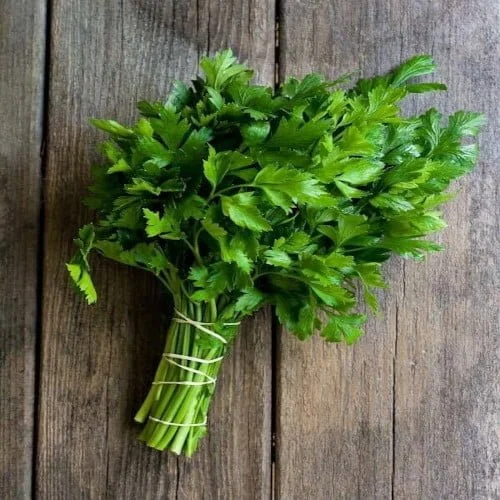Coriander Seeds (100seeds)
₹10.0
Coriander is a common herb in the daily household. The flavor enhances the dishes. Try our Non-GMO Coriander Seeds. Also, check out our workshops for more details.
PRODUCT DESCRIPTION
Number of seeds in a packet – 100
PLANT DESCRIPTION
- Difficulty Level – Easy
- Plant Height – 12 – 22 inches
- Type – Indoor (Balcony) / Outdoor
- Feed – VermiCompost for nutrients every week, Seaweed once a month for greener leaves, and Epsom salt for better blooming once a month.
- Watering – Everyday
- Sunlight – Full sunlight
- Germination time – 1 week
- Harvesting time – 4 weeks
- Suitable Temperature – 20°C – 25°C
- Season – Annual
- Sowing – Spring
ALTERNATE NAME
Botanical name: Coriandrum sativum
coriander seed in hindi: Dhaniya (धनिया)
coriander seed in tamil: Kothamalli/ Corriander (கொத்தமல்லி)
coriander seed in telugu: Kothmira (కొత్తిమీర) ,coriender seeds
coriander seed in kannada: Kottambari (ಕೊತ್ತಂಬರಿ)
coriander seed in bengali: Dhane (ধনে)
coriander seed in marathi: Kothimber (कोथिंबीर)
coriander seed in malayalam: Malli (മല്ലി)
Other names: coriandar, CORIADER, CORIABDER, Coriyander, Corrinader, Corriender, Cariander
You must be logged in to post a review.
Q & A
The sustainability of vegetable seeds depends on several factors, including their source, cultivation methods, and conservation practices. Here are some aspects to consider when evaluating the sustainability of vegetable seeds:
Seed Sources: Opt for organic, open-pollinated, heirloom, or non-GMO (genetically modified organism) seeds. These types of seeds are often considered more sustainable because they promote biodiversity, preserve traditional crop varieties, and reduce reliance on synthetic inputs.
Genetic Diversity: Maintaining genetic diversity is crucial for long-term sustainability. It ensures that plants have the resilience and adaptability to cope with environmental changes, pests, and diseases. Open-pollinated and heirloom seeds tend to offer greater genetic diversity compared to hybrid seeds.
Seed Saving: Saving seeds from your own vegetable plants or within a community can be an effective way to promote sustainability. By selecting and saving seeds from the healthiest and most productive plants each season, you can adapt the crops to your specific growing conditions and reduce dependence on purchased seeds.
Conservation Efforts: Various organizations and seed banks around the world are dedicated to preserving agricultural biodiversity. They collect, store, and catalog seeds to safeguard rare and endangered plant varieties. Supporting these initiatives contributes to the long-term sustainability of vegetable seeds.
Local Adaptation: Locally adapted seeds are better suited to specific growing conditions, which can reduce the need for excessive irrigation, fertilizers, and pesticides. Consider obtaining seeds from local sources or seed exchanges that prioritize regional adaptation.
Sustainable Farming Practices: The sustainability of vegetable seeds is closely linked to the farming methods used to grow the crops. Organic and regenerative agriculture practices, such as crop rotation, cover cropping, and natural pest control, promote soil health, reduce chemical inputs, and enhance the overall sustainability of the farming system.
Packaging and Distribution: When purchasing seeds, consider the sustainability of the packaging. Look for seeds packaged in recyclable or biodegradable materials. Additionally, support seed companies and retailers that prioritize sustainable shipping and distribution practices.
Remember, sustainability is a multifaceted concept, and evaluating the sustainability of vegetable seeds involves considering environmental, social, and economic factors. By choosing seeds from sustainable sources, supporting local initiatives, and adopting environmentally friendly farming practices, you can contribute to a more sustainable food system.
General Inquiries
There are no inquiries yet.

















Reviews
There are no reviews yet.